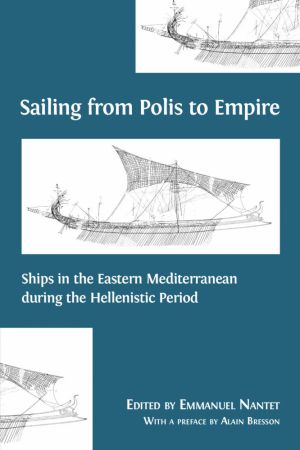Naval Leadership in the Atlantic World
The Age of Reform and Revolution, 1700-1850
by Agustín Guimerá, Richard Harding
DescriptionTable of ContentsDetailsHashtagsReport an issue 






Book Description
The naval leader has taken centre stage in traditional naval histories. However, while the historical narrative has been fairly consistent the development of various navies has been accompanied by assumptions, challenges and competing visions of the social characteristics of naval leaders and of their function. Whilst leadership has been a constant theme in historical studies, it has not been scrutinised as a phenomenon in its own right. This book examines the critical period in Europe between 1700-1850, when political, economic and cultural shifts were bringing about a new understanding of the individual and of society. Bringing together context with a focus on naval leadership as a phenomenon is at the heart of this book, a unique collaborative venture between British, French and Spanish scholars. As globalisation develops in the twenty-first century the significance of navies looks set to increase. This volume of essays aims to place naval leadership in its historical context.This open book is licensed under a Creative Commons License (CC BY). You can download Naval Leadership in the Atlantic World ebook for free in PDF format (23.1 MB).
Table of Contents
Chapter 1
Introduction: Naval Leadership in the Age of Reform and Revolution, 1700-1850
Chapter 2
The Royal Navy, History and the Study of Leadership
Chapter 3
Leadership Networks and the Effectiveness of the British Royal Navy in the Mid-Eighteenth Century
Chapter 4
The Reputation of Louis XV's Vice-Admirals of France
Chapter 5
Types of Naval Leadership in the Eighteenth Century
Chapter 6
Naval Leadership in a 'Fleet in Being': The Spanish Navy and 'Armed Neutrality' in the Mid-Eighteenth Century
Chapter 7
Admiral Louis Guillouet, Comte d'Orvilliers (1710-92): A Style of Command in the Age of the American War
Chapter 8
Le Bailli Pierre-André de Suffren: A Precursor of Nelson
Chapter 9
Naval Leadership and the French Revolution
Chapter 10
Leadership in the French Navy during the Revolution and Empire. The Optimist and the Pessimist: Louis-René de Latouche- Tréville (1745-1804) and Pierre Charles de Villeneuve (1763-1806)
Chapter 11
Admiral Antonio Barceló, 1716-97: A Self-Made Naval Leader
Chapter 12
Naval Leadership and the 'Art of War': John Jervis and José de Mazarredo Compared (1797-9)
Chapter 13
Luis María de Salazar, Ángel Laborde and the Defence of Cuba, 1825-9: A Study in Combined Leadership
Chapter 14
Napier, Palmerston and Palmella in 1833: The Unofficial Arm of British Diplomacy
Chapter 15
Afterword
Book Details
Title
Naval Leadership in the Atlantic World
Subject
History
Publisher
University of Westminster Press
Published
2017
Pages
213
Edition
1
Language
English
ISBN13
9781911534082
ISBN10
1911534084
ISBN13 Digital
9781911534099
ISBN10 Digital
1911534092
PDF Size
23.1 MB
License

Related Books

This open book is unique in its contents. No other title in the book market has tackled this important subject. It introduces innovation as a way of practice for world-class universities. It, then, discusses the criteria for being innovative in the academic world. The book selects some of the top innovative world-class universities to study the fac...

What can the architecture of ancient ships tell us about their capacity to carry cargo or to navigate certain trade routes? How do such insights inform our knowledge of the ancient economies that depended on maritime trade across the Mediterranean?
These and similar questions lie behind Sailing from Polis to Empire, a fascinating insight into th...

Books about Oxford have generally focused on the University rather than the city. This original book on the local politics of Oxford City from 1830 to 1980 is based on a comprehensive analysis of primary sources and tells the story of the city's progressive politics. The book traces this history from Chartism and electoral reform in the mid-ni...

In this book, you will learn how digital signals are captured, represented, processed, communicated, and stored in computers. The specific topics we will cover include: physical properties of the source information (such as sound or images), devices for information capture (microphones, cameras), digitization, compression, digital signal representa...

This book discusses how Norwegian shipping companies played a crucial role in global shipping markets in the 20th century, at times transporting more than ten per cent of world seaborne trade. Chapters explore how Norway managed to remain competitive, despite being a high labour-cost country in an industry with global competition. Among the feature...

This book explores the conscious and unconscious norms, values, and characteristics that drive behaviors within the high-tech capital of the world, Silicon Valley, and the sector it represents. In an era where the reach and influence of a single industry has the potential to define the future of our world, it has become apparent just how little we ...

